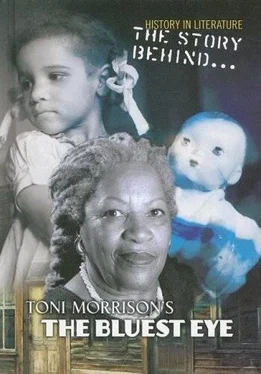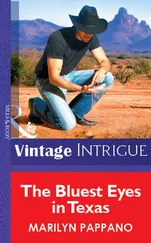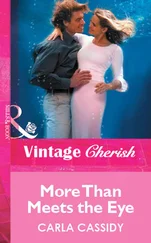Three women are leaning out of two windows. They see the long clean neck of a new young boy and call to him. He goes to where they are. Inside, it is dark and warm. They give him lemonade in a Mason jar. As he drinks, their eyes float up to him through the bottom of the jar, through the slick sweet water. They give him back his manhood, which he takes aimlessly. The pieces of Cholly's life could become coherent only in the head of a musician. Only those who talk their talk through the gold of curved metal, or in the touch of black-and-white rectangles and taut skins and strings echoing from wooden corridors, could give true form to his life. Only they would know how to connect the heart of a red watermelon to the asafetida bag to the muscadine to the flashlight on his behind to the fists of money to the lemonade in a Mason jar to a man called Blue and come up with what all of that meant in joy, in pain, in anger, in love, and give it its final and pervading ache of freedom. Only a musician would sense, know, without even knowing that he knew, that Cholly was free. Dangerously free. Free to feel whatever he felt-fear, guilt, shame, love, grief, pity. Free to be tender or violent, to whistle or weep. Free to sleep in doorways or between the white sheets of a singing woman. Free to take a job, free to leave it.
He could go to jail and not feel imprisoned, for he had already seen the furtiveness in the eyes of his jailer, free to say, "No, suh," and smile, for he had already killed three white men. Free to take a woman's insults, for his body had already conquered hers. Free even to knock her in the head, for he had already cradled that head in his arms. Free to be gentle when she was sick, or mop her floor, for she knew what and where his maleness was. He was free to drink himself into a silly helplessness, for he had already been a gandy dancer, done thirty days on a chain gang, and picked a woman's bullet out of the calf of his leg. He was free to live his fantasies, and free even to die, the how and the when of which held no interest for him. In those days, Cholly was truly free. Abandoned in a junk heap by his mother, rejected for a crap game by his father, there was nothing more to lose. He was alone with his own perceptions and appetites, and they alone interested him. It was in this godlike state that he met Pauline Williams. And it was Pauline, or rather marrying her, that did for him what the flashlight did not do.
The constantness, varietylessness, the sheer weight of sameness drove him to despair and froze his imagination. To be required to sleep with the same woman forever was a curious and unnatural idea to him; to be expected to dredge up enthusiasms for old acts, and routine ploys; he wondered at the arrogance of the female. When he had met Pauline in Kentucky, she was hanging over a fence scratching herself with a broken foot. The neatness, the charm, the joy he awakened in her made him want to nest with her.
He had yet to discover what destroyed that desire. But he did not dwell on it. He thought rather of whatever had happened to the curiosity he used to feel. Nothing, nothing, interested him now.
Not himself, not other people. Only in drink was there some break, some floodlight, and when that closed, there was oblivion.
But the aspect of married life that dumbfounded him and rendered him totally disfunctional was the appearance of children. Having no idea of how to raise children, and having never watched any parent raise himself, he could not even comprehend what such a relationship should be. Had he been interested in the accumulation of things, he could have thought of them as his material heirs; had he needed to prove himself to some nameless "others," he could have wanted them to excel in his own image and for his own sake. He had not been alone in the world since he was thirteen, knowing only a dying old woman who felt responsible for him, but whose age, sex, and interests were so remote from his own, he might have felt a stable connection between himself and the children. As it was, he reacted to them, and his reactions were based on what he felt at the moment.
So it was on a Saturday afternoon, in the thin light of spring, he staggered home reeling drunk and saw his daughter in the kitchen. She was washing dishes. Her small back hunched over the sink. Cholly saw her dimly and could not tell what he saw or what he felt. Then he became aware that he was uncomfortable; next he felt the discomfort dissolve into pleasure. The sequence of his emotions was revulsion, guilt, pity, then love. His revulsion was a reaction to her young, helpless, hopeless presence. Her back hunched that way; her head to one side as though crouching from a permanent and unrelieved blow. Why did she have to look so whipped? She was a child-unburdened-why wasn't she happy? The clear statement of her misery was an accusation. He wanted to break her neck-but tenderly. Guilt and impotence rose in a bilious duet. What could he do for her-ever? What give her? What say to her? What could a burned-out black man say to the hunched back of his eleven-year-old daughter? If he looked into her face, he would see those haunted, loving eyes. The hauntedness would irritate him-the love would move him to fury. How dare she love him? Hadn't she any sense at all? What was he supposed to do about that? Return it? How? What could his calloused hands produce to make her smile? What of his knowledge of the world and of life could be useful to her? What could his heavy arms and befuddled brain accomplish that would earn him his own respect, that would in turn allow him to accept her love? His hatred of her slimed in his stomach and threatened to become vomit. But just before the puke moved from anticipation to sensation, she shifted her weight and stood on one foot scratching the back of her calf with her toe. It was a quiet and pitiful gesture. Her hands were going around and around a frying pan, scraping flecks of black into cold, greasy dishwater. The timid, tucked-in look of the scratching toe-that was what Pauline was doing the first time he saw her in Kentucky.
Leaning over a fence staring at nothing in particular. The creamy toe of her bare foot scratching a velvet leg. It was such a small and simple gesture, but it filled him then with a wondering softness. Not the usual lust to part tight legs with his own, but a tenderness, a protectiveness. A desire to cover her foot with his hand and gently nibble away the itch from the calf with his teeth. He did it then, and startled Pauline into laughter. He did it now. The tenderness welled up in him, and he sank to his knees, his eyes on the foot of his daughter. Crawling on all fours toward her, he raised his hand and caught the foot in an upward stroke. Pecola lost her balance and was about to careen to the floor. Cholly raised his other hand to her hips to save her from falling. He put his head down and nibbled at the back of her leg. His mouth trembled at the firm sweetness of the flesh. He closed his eyes, letting his fingers dig into her waist. The rigidness of her shocked body, the silence of her stunned throat, was better than Pauline's easy laughter had been. The confused mixture of his memories of Pauline and the doing of a wild and forbidden thing excited him, and a bolt of desire ran down his genitals, giving it length, and softening the lips of his anus.
Surrounding all of this lust was a border of politeness. He wanted to fuck her-tenderly. But the tenderness would not hold. The tightness of her vagina was more than he could bear. His soul seemed to slip down to his guts and fly out into her, and the gigantic thrust he made into her then provoked the only sound she made-a hollow suck of air in the back of her throat. Like the rapid loss of air from a circus balloon. Following the disintegration-the falling away-of sexual desire, he was conscious of her wet, soapy hands on his wrists, the fingers clenching, but whether her grip was from a hopeless but stubborn struggle to be free, or from some other emotion, he could not tell. Removing himself from her was so painful to him he cut it short and snatched his genitals out of the dry harbor of her vagina. She appeared to have fainted. Cholly stood up and could see only her grayish panties, so sad and limp around her ankles. Again the hatred mixed with tenderness. The hatred would not let him pick her up; the tenderness forced him to cover her. So when the child regained consciousness, she was lying on the kitchen floor under a heavy quilt, trying to connect the pain between her legs with the face of her mother looming over her.
Читать дальше











